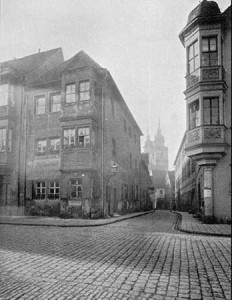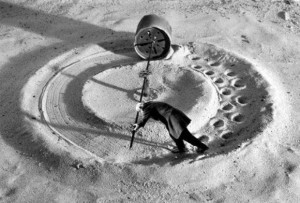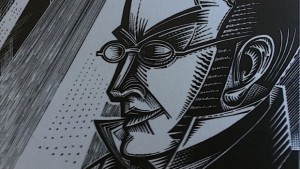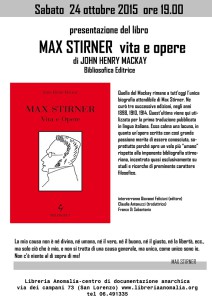Continue reading Max Baginski: “Stirner: El Único y Su Propiedad”
Tag Archives: Stirner Max
How the Stirner Eats Gods
Alejandro de Acosta
About his philosophical nickname
The author of the fine book The Ego and its Own was a man whose forehead sprouted a name: Stimer refers to his great brow. There is something charming about the fact that this book was signed with a pseudonym – this book that insists to the death on irreducible, irreparable uniqueness.
Continue reading How the Stirner Eats Gods
An Immense, Reckless, Shameless, Conscienceless, Proud Crime
Wolfi Landstreicher
An Immense, Reckless, Shameless, Conscienceless, Proud Crime
Stirner’s Demolition of the Sacred
Stirner’s Demolition of the Sacred
“In crime the egoist has hitherto asserted himself and mocked at the sacred; the break with the sacred, or rather of the sacred, may become general. A revolution never returns, but an immense, reckless, shameless, conscienceless, proud—crime, doesn’t it rumble in the distant thunder, and don’t you see how the sky grows ominously silent and gloomy?”—Max Stirner
Continue reading An Immense, Reckless, Shameless, Conscienceless, Proud Crime
EL IMPLACABLE ÚNICO: CAMUS, LECTOR DE STIRNER (FANZINE)
 Click en la imagen para descargar
Click en la imagen para descargar
«El individuo se erige por encima de cada moral, de cada regla y cada esencia inmutable, y se vuelve un Yo autofundante que no reconoce nada más allá de su propio poder y el esplendido egoísmo de las estrellas: la continua destrucción de lo Sagrado es, para Camus, una avalancha que arrastra, derriba y destroza todo, que no tendrá fin hasta que resplandezcan las ruinas del mundo, paisaje desolado donde se oye la risa del único-rey. Al obrar de este modo, el Único stirneriano descrito por Camus es necesariamente implacable y criminal en su constante tentativa de quebrantar todo lo que obstaculiza la búsqueda de su Yo, de su autenticidad, en un proceso de destrucción tanto del más allá exterior que limita la potencia del individuo (el Estado, el Capital, Dios…), como del más acá interior que, con mayor sutileza, prohíbe incluso percibir dicha dependencia.
Continue reading EL IMPLACABLE ÚNICO: CAMUS, LECTOR DE STIRNER (FANZINE)
The Philosophical Reactionaries
Max Stirner (1847)
A Response to Kuno Fischer’s “The Modern Sophists”[1]
A prolific painter, working in his studio, was called to lunch by his wife. He answered: “Wait just a moment; I only have twelve life-size apostles, a Christ and a Madonna to paint.” Such is the way of the philosophical reactionary Kuno Fischer — I chose this phrase, because one must not appear in the drawing room of philosophy without the tailcoat [2] of a philosophical phrase — he deals with the difficult titan’s work of modern criticism, which had to storm the philosophical heaven, the last heaven under the heavens, in broad brushstrokes. He depicts one after the other. It is a joy to see. Strauss, Feuerbach, Bruno Bauer, Stirner, the Greek sophists, the Jesuits, the sophists of romanticism, all get depicted using the same stencil.
ESISTENZA ED INDICIBILITÀ IN MAX STIRNER
“Due verità che gli uomini generalmente non crederanno mai: l’una di non saper nulla, l’altra di non esser nulla. Aggiungi la terza, che ha molta dipendenza dalla seconda: di non aver nulla a sperare dopo la morte”
(G. Leopardi).
Continue reading ESISTENZA ED INDICIBILITÀ IN MAX STIRNER
La influencia del stirnerismo en el movimiento libertario español
Las concepciones filosóficas de Stirner, concretadas en su famoso libro El único y su propiedad, que data del 1844, llegaron con bastante retraso a España. Además de llegar tarde estas ideas se incorporaron al discurso libertario por mediación y influencia de otros autores; en contadas ocasiones de forma directa. Nietzsche y Armand son dos de los autores más destacados, los que me interesaría analizar aquí (a parte del propio Stirner, evidentemente). Ambos autores fueron claramente influenciados por la filosofía de Stirner, y la asimilaron y desarrollaron a su particular manera. Se sabe que el autor de Así habló Zaratustra admiró a Stirner en secreto, sobretodo para evitar posibles identificaciones de su filosofía con el anarquismo y el individualismo stirnerianos.
Continue reading La influencia del stirnerismo en el movimiento libertario español
LA LIBERTÀ DI UDIRE.
Della libertà di stampa si suole mettere in rilievo soltanto un lato, quello che essa è la libertà di parola, e si trascura completamente l’altro, quello cioè che per mezzo di tale libertà viene assicurata la altrettanto inalienabile libertà di ascoltare. La censura non si limita a imporre il giogo alla libertà di parlare, ma sopprime anche la libertà di udire. Sicuro, essa, mentre sopprimendo la libertà di parola non toglie la loro libertà a tutti i parlatori, ma specialmente ai governanti permette di dire ciò che essi vogliono dire, invece come padrona della libertà d’udire esercita una inesorabile violenza contro i principi stessi.
Continue reading LA LIBERTÀ DI UDIRE.
Presentazione del libro “Max Stirner – Vita e opere” alla Libreria Anomalia (rOMA)
Sabato 24 ottobre ore 19,00 presentazione del libro
Max Stirner. Vita e Opere
di JOHN HENRY MACKAY
Roma, Bibliosofica, 2013
interverranno:
Continue reading Presentazione del libro “Max Stirner – Vita e opere” alla Libreria Anomalia (rOMA)
Il “Proprietario” di Max Stirner
Di Bernd A. Laska( … ). Descrivere la figura stirneriana del “Proprietario” solleva tuttavia alcuni problemi particolari perché l’opera L’Unico e la sua proprietà di Stirner, che somiglia piuttosto ad uno scritto di circostanza, non è esente da imprecisioni terminologiche. (73+) Bisogna aggiungere a ciò che Stirner si guardò del tutto deliberatamente dal dare al Proprietario dei tratti ben precisi. È per questo che abbiamo a che fare qui, a dir il vero, con una forma senza forma. (74+) Dobbiamo dunque cominciare con il mostrare che è pertinente, malgrado tutto, parlare della “forma del Proprietario”.
Continue reading Il “Proprietario” di Max Stirner








